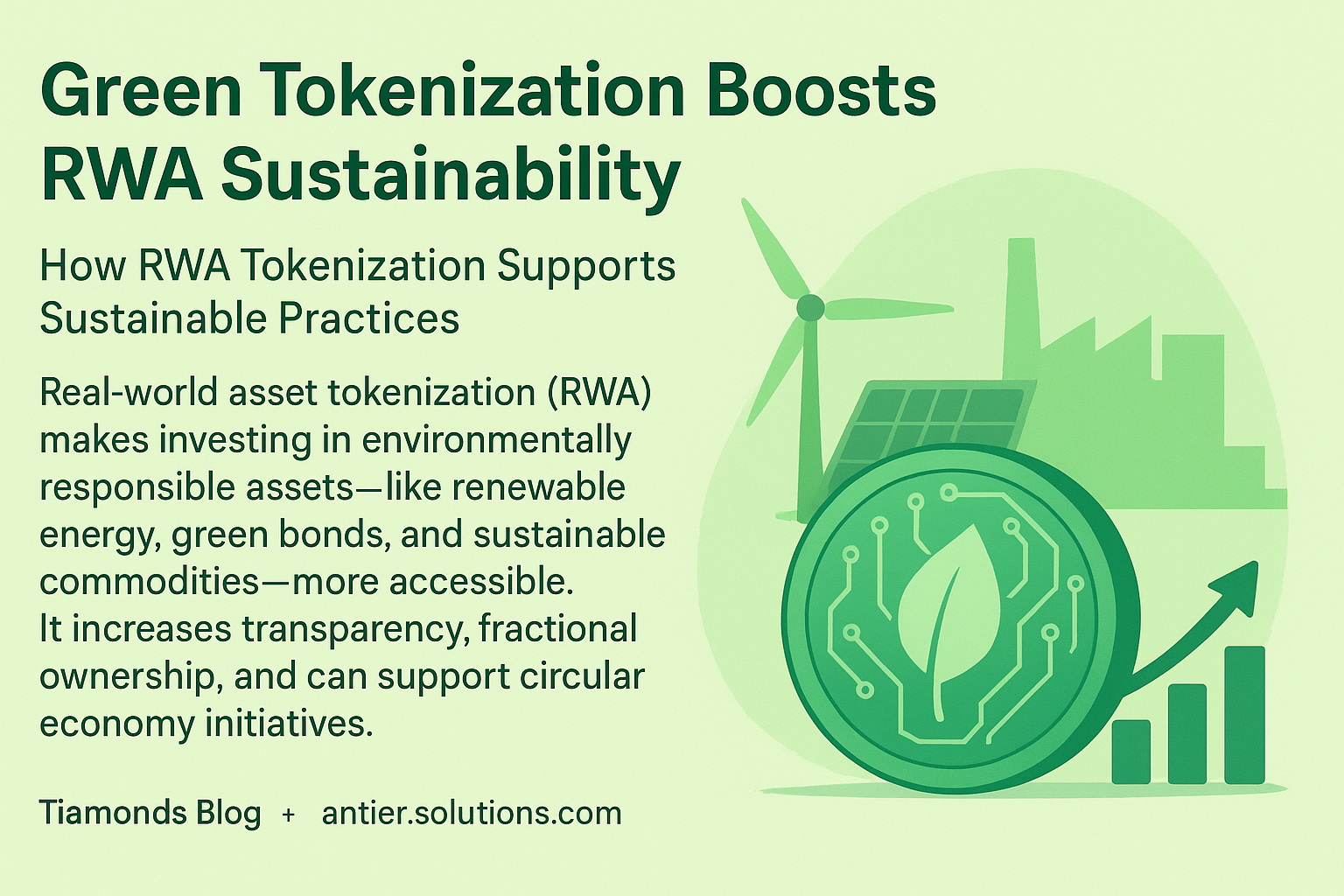In a world increasingly focused on environmental responsibility, real-world asset tokenization (RWA) is emerging as a transformative force for sustainable investing. By leveraging blockchain technology, RWA tokenization allows physical assets—such as renewable energy projects, eco-certified real estate, green bonds, and sustainable commodities—to be represented as digital tokens. This innovation opens the door to greater accessibility, transparency, and participation in the green economy.
What is RWA Tokenization?
RWA tokenization is the process of converting the ownership or rights to a physical asset into digital tokens on a blockchain. Each token represents a fraction of the asset, enabling investors to participate without the need for large upfront capital. This fractional ownership is particularly powerful for sustainable projects that require significant funding, such as wind farms, solar power installations, or reforestation initiatives.
Making Sustainable Investments More Accessible
Traditionally, investing in large-scale green projects was limited to institutional investors or high-net-worth individuals. Tokenization breaks down these barriers by allowing anyone, from retail investors to global funds, to buy a share of an environmentally responsible asset. This democratization of investment helps direct more capital toward projects that have a measurable positive environmental impact.
Enhancing Transparency and Trust
One of the main advantages of blockchain-based tokenization is the inherent transparency of distributed ledgers. Every transaction is recorded immutably, allowing investors to verify how funds are allocated and how the underlying asset is performing. This is crucial for sustainable projects, where trust and accountability are key to long-term success.
Supporting the Circular Economy
Tokenized assets can also be linked to circular economy initiatives, where resources are reused, recycled, and repurposed instead of being wasted. For example, tokenization could finance a network of facilities that recycle electronic waste or repurpose industrial by-products, with token holders benefiting from the revenue generated.
Green Bonds, Renewable Energy, and Beyond
The tokenization of green bonds—debt instruments used to fund environmentally friendly projects—offers faster issuance, lower transaction costs, and global reach. Similarly, renewable energy projects can tokenize future energy production, enabling investors to directly fund clean power and share in its economic returns.
Challenges and the Road Ahead
While the benefits are significant, RWA tokenization for sustainability is still in its early stages. Regulatory clarity, standardized frameworks, and investor education remain important hurdles to overcome. However, as blockchain adoption grows and environmental concerns take center stage, the momentum behind green tokenization is expected to accelerate.
Green tokenization represents a powerful bridge between blockchain innovation and sustainable development. By making environmentally responsible assets more accessible, transparent, and financially attractive, it has the potential to channel unprecedented levels of investment into projects that benefit both the planet and investors. As this technology matures, it may well become a cornerstone of global sustainability efforts.




